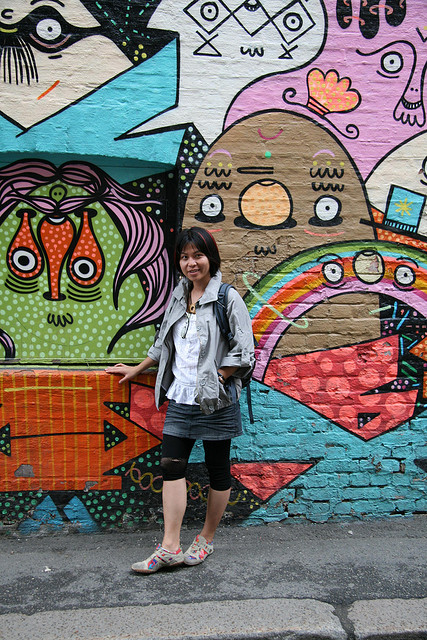
Are there poor people in one of the richest countries in the world? This question frequented my mind before and during my trip to Oslo. “There aren’t really poor people from Norway,” said Thor. “They are either illegal immigrants or choose to be.” Are Norwegians contented with life? I assumed they were since when people were rich, they were probably satisfied and wouldn’t bitch a lot. Well, Thor contradicted me. “But we also complain a lot about everything. Once, our minister gave a speech and told people to look at the statistics that we have the highest living standard in the world. ‘Please stop complaining.’”
An American friend of mine studied for two years in Sweden and spent one semester in Denmark once told me over dinner:: “When you hear the Swedes complain about their problems, you realize that they have no problem. Problems are reduced to almost nothing.” He scooped another bite of noodles and continued, “But because they are so problem-oriented, they solve every single problem they have.”
These days, I could not go to sleep without reading or hearing about the woes of the global crisis. Online news portal, newspapers and friends’ emails only exacerbated the ‘severity” of the problem. My boyfriend told me to find a job in Norway as he was searching for jobs there and sent a few resume. The simplicity of his statement briefly tempted me to think northward for a while. I even started visualizing a cold new life in the hometown of Santa Claus. He thought that he would make more money there. Sure I would. Regardless of how much pay I would receive after subtracted by a ridiculous amount of income tax, the money would be higher than the petty Czech salary. But that wasn’t the point. I would like one day to live in Scandinavia as I occasionally joked that I was once a communist, and then a capitalist and now I wanted to be a socialist. Where else to learn how to be a proper socialist than in Scandinavia? The high living standard is a definite plus, but unless we have been fresh-of-the-boat refugees floating in the Pacific Ocean seeking asylum, crawled out of a Deli slum, crossed the Rio Grande in the quest of the American dream or trekked across the Sub-Sahara desert to find our way into Europe, which we can then experience right away the drastic contrast of living standard. If we hail from developed, Western countries, the standards don’t differ by much.
“The global crisis doesn’t affect them. Ask someone over there to get you a job.” Honza was not going to drop the subject anytime soon and deliberately chose to ignore that employer in Norway required people to speak local languages (Norwegian, Swedish or Danish). Like many other Eastern Europeans, he, too, was occupied with the aspect of moving westward for a better job prospect. Anyway, his inquiry got me curious why Norwegians could complain only about the weather while everybody else was lamenting over job loss. The oil discovery in the 70s has made Norway the world’s 3rd and 5th in gas and oil export. They controlled their fishing industry for not being a member of the EU. They had a hefty sovereign wealth fund covered by petroleum money. Their finance system was stable. One-third of Norway’s labor force was employed in the country’s large public sectors among which were health and education. At the time when I kept reading about hundreds of schools and pharmacies being closed due to the finance meltdown, it was bewildering to grasp how Norway was at all affected. Why would they when health and education were paid for by the government, who was, by the way, handsomely wealthy. The Norwegians had a strong welfare system, but they also controlled it tightly. I got to know “under-the-table” activities during the first few months arriving in the US. “Under-the-table” means working for cash while receiving welfare or other benefits from the government. A friend of mine who had relatives in Norway told me that this practice just was not easy or possible in Norway. She could not elaborate more other than giving me a small example. Her aunt’s family owned a restaurant in Oslo. Now and then, the aunt and her husband wanted to help out with the business, doing little things, but they dared not because by doing so, they would have to inform the government that they worked, therefore, getting their retirement/pension benefit reduced. If they didn’t inform, they risked the penalty from the government. She said that people could not cheat as much as in the US.
Thor told me water is for free, and banks incurred no petty charges other than giving the clients money back at the end of the month. When shopping at a local grocery, I paid extra attention to a range of product labels and found that almost all were produced in Norway. I’m not an economist and have not lived in Norway so obviously not an expert for source citing, but I believe Norway has managed to carve out a sustainable standard of living.
Sure, Norway won the mega lottery when it discovered the oil in the North Sea, but natural resources alone don’t automatically make a country ‘rich.’ It takes a combination of doing many things right, and for the time being the Norwegians know what they are doing.
July 10th, 2009
[slickr-flickr type=”galeria” tag=”norway” caption=”on” description =”on”]